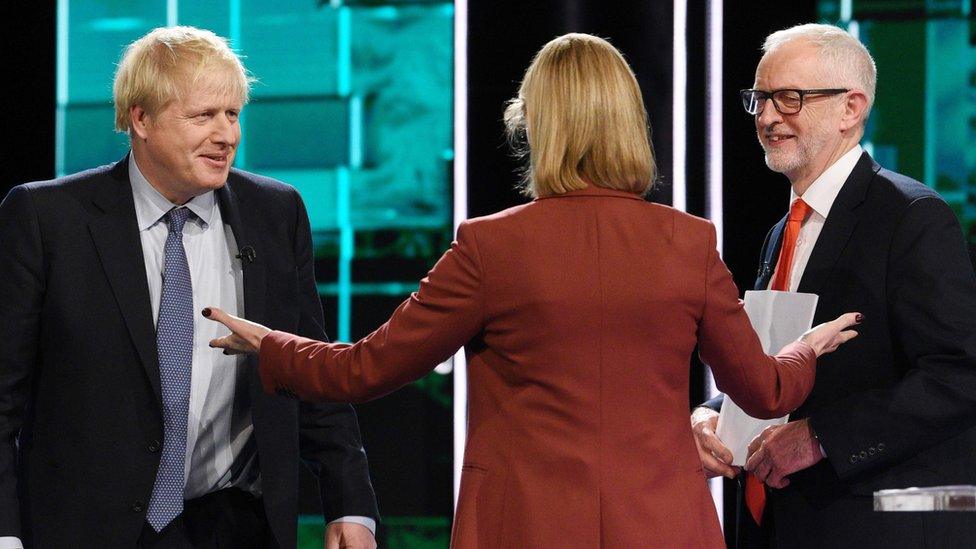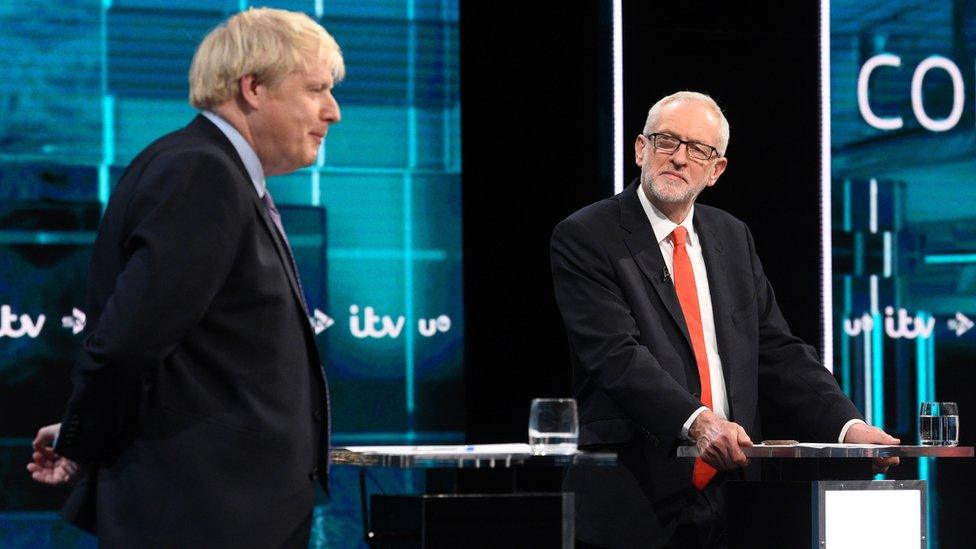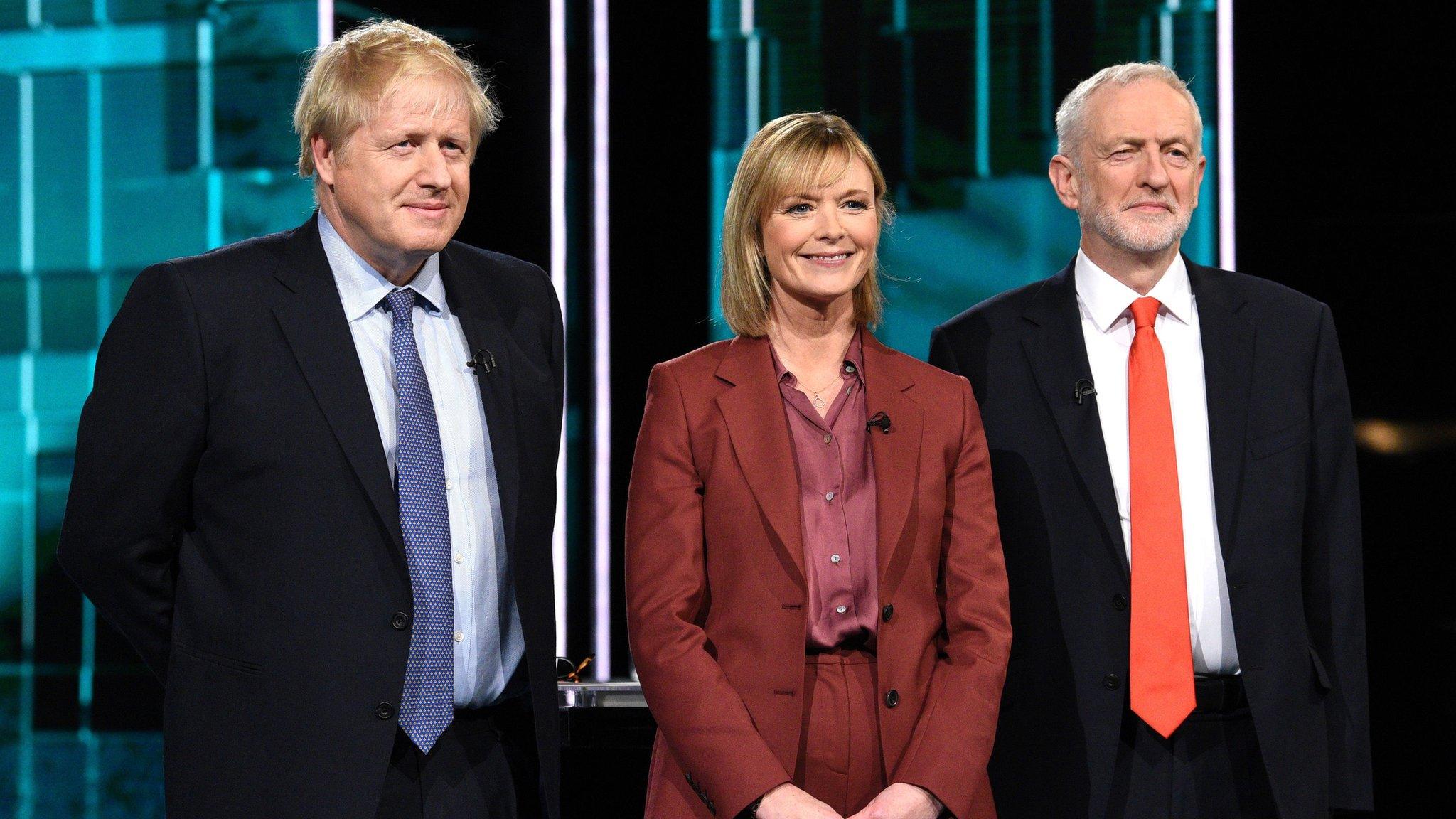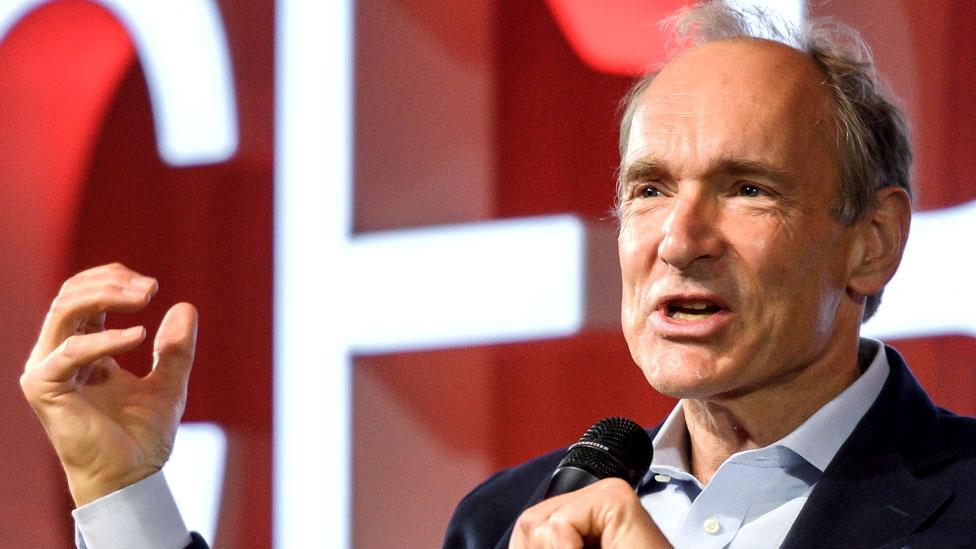Sir Tim Berners-Lee attacks Tories over misinformation
- Published
Sir Tim Berners-Lee said it was "really brazen".
The inventor of the World Wide Web has accused the Conservatives of spreading misinformation during the general election campaign.
Sir Tim Berners-Lee described the renaming of a Tory Twitter account as a fact checking body as "impersonation".
"That was really brazen," he told the BBC. "It was unbelievable they would do that."
During a live TV leaders' debate on Tuesday the Tory press office account @CCHQ was rebranded "factcheckuk".
The renaming remained for the duration of the hour-long debate between Boris Johnson and Jeremy Corbyn. The Conservatives have said "no one will have been fooled" by the move.
But Sir Tim said the renaming "was impersonation. Don't do that. Don't trust people who do that."
He went on to compare what happened with someone impersonating a friend for the purpose of defrauding them. "What the Conservative Party has done is obviously a no no. That's amazingly blatant," Sir Tim said.
The Conservative Party has yet to respond to a BBC request for comment on Sir Tim's criticism, but has previously insisted that it was clear at all times that the Twitter account belonged to the party.

The Tories have said "no-one will have been fooled" by the renaming
The web's creator also called on Facebook to stop allowing targeted political adverts. He issued a personal appeal to the company's founder, Mark Zuckerberg, to ban them before the election.
Sir Tim said: "It's not fair to risk democracy by allowing all these very subtle manipulations with targeted ads which promote completely false ideas. They do it just before the election, and then disappear."
Better future
He was speaking as he unveiled Contract For The Web, external, an attempt to bring governments, companies and individuals together to shape a better future for the online world.
The contract sets out nine principles to halt the misuse of the web and protect it as a force for good. They include making the internet freely available and affordable, and respecting consumers' privacy and their data.
A handful of countries have been involved in drawing up the contract, along with companies including Google, Facebook and Microsoft. .
Sir Tim admitted that countries such as China and Russia were unlikely to sign up to the project. He also conceded that the US might not be too keen on a document which stresses the importance of net neutrality, the principle that internet providers should treat all net traffic equally.
Optimism
The Trump administration has sought to overturn net neutrality rules brought in under President Obama.
"The current administration hasn't shown any interest in signing up to those kinds of principles," he said. But he pointed out that elections were coming up in the UK and the US and urged people to talk to candidates about the Contract for the Web.
Thirty years after he created the World Wide Web at the CERN particle physics lab near Geneva, Sir Tim admits that he is concerned about the way it has developed in recent years.
As for any optimism about what comes next, he is uncertain: "If optimism is seeing a place where it could be, which is very empowering to individuals and to humanity. Yes. I am very optimistic. If optimism is being very confident that we will get there - I'm not."
The Web Foundation, which has spent the last year drawing up the detailed clauses behind the Contract for the Web, will now work to get more governments and companies to sign up to it.
- Published20 November 2019

- Published20 November 2019

- Published11 March 2019
